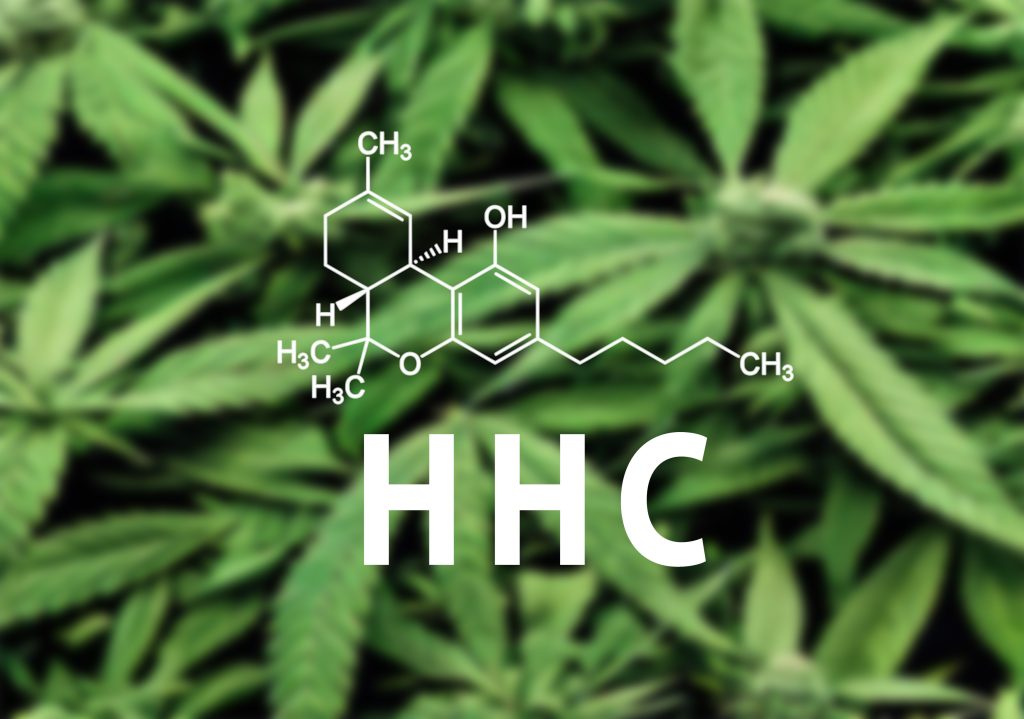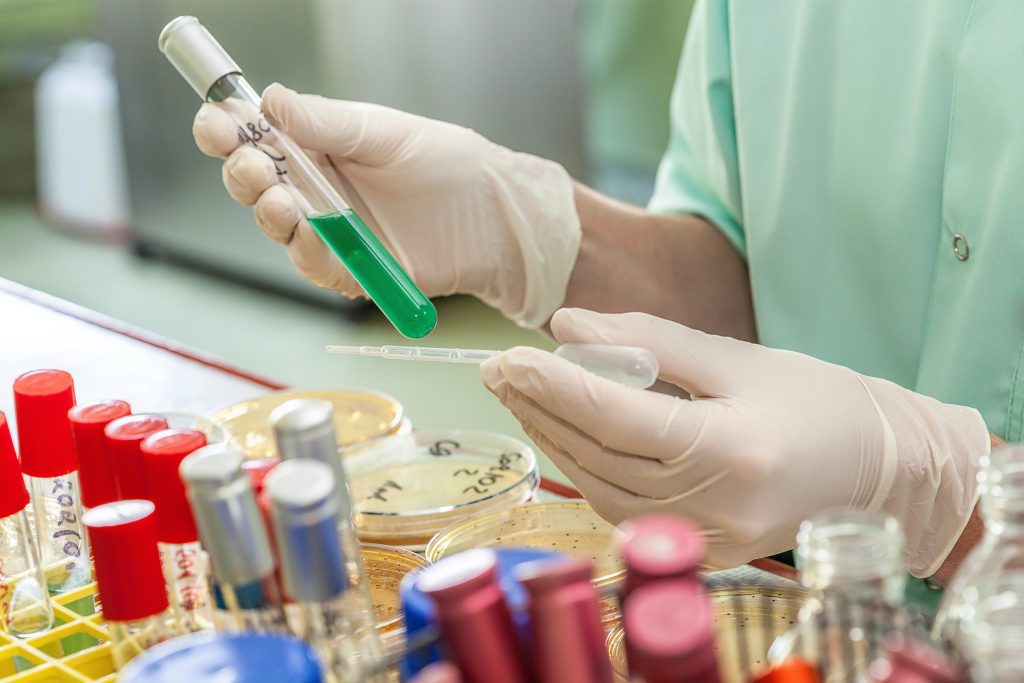With the rising use of various hemp-based cannabis products, many are wondering, “Does HHC show up on a drug test?” HHC, a newer cannabinoid compound on the market, will likely show up on most routine drug tests. HHC is structurally similar to THC, which can complicate drug tests. Unfortunately, many drug screening labs or medical care centers don’t offer HHC drug tests. This kind of screening may differentiate between someone using a federally legal product and someone using a Schedule I substance. So, using products with HHC may indicate the use of marijuana on drug tests, so you may fail a drug test, which could complicate your life.
This article will delve into what science says about HHC and drug testing and its detectability in urine drug tests, giving peace of mind or a plan of action for those concerned. Read on to better understand how to navigate your way through HHC and drug tests.
Understanding HHC and Its Effects

HHC is a lesser-known cannabinoid found in some cannabis products. It is produced when THC is metabolized in the body and can also be present due to cross-contamination during manufacturing. Its chemical composition is close enough to THC that it may result in a positive drug test. Most drug screenings don’t exclude legal, hemp-derived product use. So, if you use hemp-derived HHC gummies, vapes, oils, or similar products, then you may fail a drug test.
Understanding how HHC works and its potential effects is crucial for anyone using cannabis products who may face consequences for a failed drug test.
What is HHC?
Hexahydrocannabinol, commonly known as HHC, is a compound similar to THC, the main psychoactive ingredient in cannabis. Its structure and effects mirror those of THC, leading many users to seek it out for its potential to deliver euphoric sensations.
Despite this similarity, HHC occurs naturally and can also be produced through a hydrogenation process where hydrogen atoms are added to THC. This alteration slightly changes how it interacts with the body’s cannabinoid receptors but often results in comparable experiences.
Understanding HHC’s relationship with drug screenings is critical due to its closeness to THC — a common target in substance tests. Substances like hydroxy-HHC metabolize in the body and could theoretically trigger positive THC test results during urine drug testing.
This poses significant considerations for individuals subject to drug tests, people who may face consequences from false-positive results linked to legal cannabinoid use.
Metabolism and cross-contamination
HHC metabolizes in the body in ways that are strikingly similar to THC, the primary psychoactive compound in cannabis. This metabolic similarity is why HHC can be a red flag during drug screenings.
The enzymes in your liver break down HHC into multiple metabolites, some of which overlap with those produced from THC consumption. These shared metabolites can trigger positive results for THC on standard urine tests.
Cross-contamination is another factor that could affect drug test outcomes when using HHC products. Even if an item claims it only contains HHC, there’s no guarantee it’s free from traces of THC or other cannabinoids unless verified by a reliable third-party lab.
As such, individuals who use federally legal HHC might unknowingly ingest small amounts of THC, leading to potential detection and positive results on a urine drug test designed to screen for cannabinoid use.
Drug Testing and HHC

Drug tests work by detecting the presence of specific substances or their metabolites in the body, including THC metabolites from cannabis products. While traditional drug tests may not specifically target HHC, there is a possibility for cross-reactivity that could lead to false positive results.
Understanding the regulations and limitations of drug tests can help individuals navigate potential issues when using HHC products.
How drug tests work
Drug tests are designed to detect specific substances in a person’s system, typically through analyzing samples such as urine, blood, saliva, or hair. In the case of urine drug tests, which are often used for employment screenings, the process starts with a sample collection under controlled conditions to prevent tampering.
Technicians then use immunoassay screening to check for compounds indicative of drug use; this includes metabolites like THC or its analogs.
If initial results indicate the presence of these substances, confirmatory testing usually follows using techniques like gas chromatography-mass spectrometry (GC-MS). These tests offer precise data on the concentration of drugs or their metabolites and can identify individual molecules like hydroxy THC from cannabis products or products with a similar chemical structure to THC products.
They play a critical role in ensuring accurate detection and ruling out false positives that might affect someone’s livelihood based on unreliable results.
HHC and THC metabolites
THC and HHC metabolites can trigger a positive result on a drug test, as they share similarities in structure and metabolism. The presence of HHC in the body may lead to false positive results for THC during urine drug screenings.
Studies are ongoing, but it is probable that HHC will appear as a marker for THC use when undergoing drug tests. Therefore, individuals should be mindful of the potential impact of HHC on drug test outcomes and consider abstaining from its use before expected testing.
Understanding the connection between THC and HHC metabolites and their chemical structure is crucial when navigating through cannabis products and drug tests, especially considering the potential repercussions of positive results.
This insight underscores the importance of making well-informed decisions regarding the use of cannabinoids like HHC prior to undergoing any type of drug screening.
Drug screening regulations
Given the potential impact of HHC on drug tests, understanding the regulations surrounding drug tests is crucial. Employers often implement substance testing programs to maintain a safe and productive work environment.
The regulations governing drug tests can vary by industry and jurisdiction, with some organizations requiring mandatory screening while others conduct it at their discretion. Drug testing regulations are designed to ensure workplace safety, prevent substance abuse, and uphold legal compliance.
In addition to workplace policies, there are specific protocols for drug test administration that must be followed. Standardized procedures exist for sample collection, handling, and analysis to guarantee accuracy and fairness in the process.
Will HHC Show Up on a Drug Test?

Limited research suggests that HHC may lead to false positive results on a drug test for THC, but the extent of this effect is not well understood. It’s important to be aware of the source and components of HHC products to better understand their potential impact on drug tests.
Limited research on HHC and drug tests
While there is limited research on HHC and its interaction with drug tests, anecdotal reports and ongoing studies suggest that it may affect the results of drug screenings. The exact impact of HHC on drug tests remains unclear, but it is essential to consider the potential for false positive results due to its similarity to THC metabolites.
Understanding the connection between HHC use and drug screening outcomes is crucial in ensuring accurate screening results.
As research continues to explore the relationship between HHC and drug tests, individuals should exercise caution when using products containing this compound, especially if they anticipate undergoing a urine drug test.
Possibility of false positive results
HHC could lead to false positive results on a drug test, as it shares similarities with THC and can be detected in the body for an extended period. Limited research on HHC’s impact on drug tests indicates a potential risk of false positives due to its similarity to THC metabolites.
Anecdotal reports suggest that HHC may trigger a positive result, emphasizing the necessity for understanding the source and components of HHC products before undergoing a drug test.
It is critical to recognize the likelihood of encountering false positive results when using products containing HHC, as it could potentially affect various aspects such as employment opportunities or legal implications.
Importance of knowing the source and components of HHC products
Knowing the source and components of HHC products is crucial for making informed decisions about usage. Understanding where these products come from and their makeup can help individuals assess potential risks, ensuring they are not unknowingly consuming a substance that could lead to positive drug test results.
It’s essential to be aware of the possibility of cross-contamination with THC or other substances during the production process, which could affect the outcome of a drug screening.
Being informed about the origin and composition of HHC products empowers users to make responsible choices regarding their consumption, especially when faced with situations requiring drug tests. For example, HHC derived from federally legal hemp is a legally consumable product (in many states). However, if the HHC is derived from marijuana plants, then consuming it may not be legal in your state.
Knowledge of the origin and ingredients of HHC products provides insight into potential legal implications. With limited regulations in place for HHC, users need to verify that they are obtaining these products from reputable sources to avoid inadvertently violating laws or employer policies related to substance use.
Additionally, understanding the source and components of HHC allows individuals to seek assistance from medical professionals if needed when dealing with any unexpected effects or interactions due to product composition or contamination.
Tips for Using HHC and Passing a Drug Test

Limit your use of HHC before a drug test, consider using a cannabis detox kit, and seek legal and medical advice to ensure you’re prepared. To learn more about how to navigate drug testing with HHC products, keep reading!
Limit use of HHC before a drug test
Consider reducing HHC intake before undergoing a drug test to minimize the risk of a positive drug test indicating the presence of THC. Abstaining from HHC and other THC analogs for at least 3 weeks prior to the expected test is the most reliable way to ensure a negative result.
This precaution aligns with the likelihood that HHC can impact drug test outcomes, particularly in cases where it acts as a marker for positive THC results.
Looking into using cannabis detox kits or seeking legal and medical advice may also be beneficial when preparing for a drug screening involving HHC or related substances.
Consider using a cannabis detox kit
Using a cannabis detox kit can help expedite the process of eliminating THC and HHC metabolites from the body. These kits often contain supplements, herbal teas, and dietary recommendations supporting the body’s natural detoxification processes.
By following the instructions provided with the kit, individuals can potentially reduce the time it takes for their system to clear these substances, reducing the risk they’ll fail a drug test.
Employing a cannabis detox kit may be particularly beneficial for those who have limited time before their scheduled drug screening. It is important to note that while these kits can assist in toxin elimination, they are not foolproof solutions.
Seeking legal and medical advice
Seeking legal is crucial for anyone facing potential repercussions from testing positive for HHC or THC metabolites. It’s important to consult with a legal professional with experience in drug testing laws to understand your rights and options, especially if you want to contest a false positive result and retain your employment or a job offer.
Similarly, seeking medical advice from a healthcare provider can provide insight into the potential consequences of HHC use and how it may impact your health. By seeking both legal and medical advice, individuals can navigate the complexities of drug testing regulations while also prioritizing their well-being.
Moreover, obtaining legal guidance regarding drug testing regulations will help individuals understand their rights if they believe they’ve been unfairly penalized due to HHC use. Additionally, consulting with a healthcare professional can offer valuable information on managing any underlying health concerns related to cannabis products or drug test results.
Conclusion
We hope we’ve answered your questions about “Does HHC show up on a drug test?” The answer is yes, HHC may trigger a positive result on a urine drug test. Users should be cautious about the potential impact of HHC on drug test outcomes. It is essential to consider the metabolization and detection window of HHC when preparing for drug screening.
Taking proactive steps, such as abstaining from HHC use before an expected drug test is crucial to mitigate the risk of a positive result. Understanding the connection between HHC and most drug tests is vital for individuals using cannabis products.
FAQs
1. What is HHC, and why might it be included in a drug test?
HHC, or hexahydrocannabinol, is a compound derived from THC and may be tested for to detect cannabis use.
2. How long does HHC stay in the body after cannabis use?
The detection window for HHC in the body can vary but may typically range from days to weeks depending on factors such as frequency of use and metabolism.
3. Will standard drug tests detect the presence of HHC?
Standard drug tests usually do not specifically target HHC, which means you could fail a drug test. However, specialized tests that include this compound can identify its presence.
4. Can other substances or medications cause false positives for HHC on a drug test?
Certain prescription medications or over-the-counter products may lead to false positive results for HHC on a drug screening.
5. What should I do if I have concerns about an upcoming drug test involving the potential detection of HHC?
If you have concerns about the possibility of testing positive for HHC, it’s advisable to consult with your healthcare provider or employer prior to the test date.






